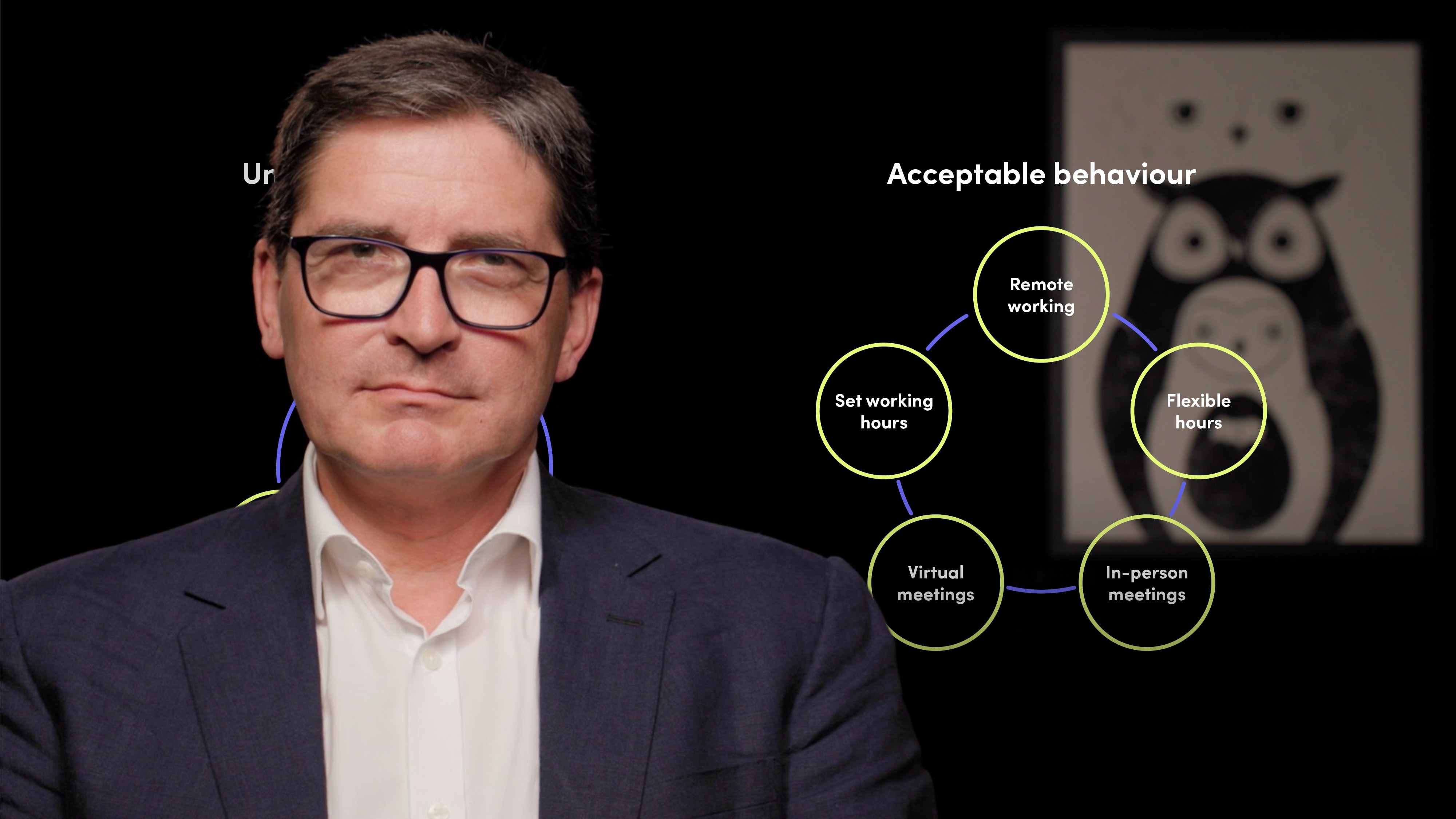
Regulatory Expectations of Good Culture post COVID-19

Roger Miles
25 years: Behavoural science & conduct
The COVID-19 pandemic has changed the world in more ways than one. More specifically, there has been social pressure for substantial changes in the workplace. Join Roger Miles in this video as he discusses the culture assessment aspect of new conduct reporting.
The COVID-19 pandemic has changed the world in more ways than one. More specifically, there has been social pressure for substantial changes in the workplace. Join Roger Miles in this video as he discusses the culture assessment aspect of new conduct reporting.
Subscribe to watch
Access this and all of the content on our platform by signing up for a 7-day free trial.

Regulatory Expectations of Good Culture post COVID-19
9 mins 16 secs
Key learning objectives:
Understand how COVID-19 has affected the workplace
Identify conduct regulator’s expectations of good culture
Define expressing purpose in the context of conduct
Overview:
COVID-19 remote working raised lots of challenges and new normal expectations about team cohesion, security, psychological safety and mental health. The conduct regulator’s new culture assessments are looking to firms to reset their view of acceptable and expected behaviour. During the pandemic, conduct regulators directly challenging regulated business leaders to better communicate a socially useful purpose more significant than turning a commercial profit.
Subscribe to watch
Access this and all of the content on our platform by signing up for a 7-day free trial.
How has COVID-19 has affected the workplace?
What conduct reports look like and the information needed for conduct reporting is now changing rapidly in response to social pressure for workplace change, brought about by COVID-19. Along with greater public pressure on firms to be upfront about reporting on their social purpose, and with so many staff in financial firms doing remote or hybrid working, there are new pressures on team morale, systems integrity and trading surveillance. Firms are already being asked to take a fresh look at their social licence - meaning how far your customers, clients and staff still give your firm the benefit of the doubt (the assumption that you’re trustworthy) that keeps you in business.
Another example is how sharply the pandemic has ramped up the numbers of people that conduct regulators define as vulnerable customers. In London, the Financial Conduct Authority (FCA), described COVID-19 as creating more than one thousand new vulnerable customers every single day in the 2020 reporting cycle. The pandemic has also added social pressure for conduct regulators to apply their rules more broadly, extending jurisdiction still further to include other types of firms, such as payday lenders.
What are the conduct regulator’s expectations of good culture?
There’s a tighter focus on non-financial misconduct, meaning the regulator cares more about abusive behaviour generally - whether with work-mates or towards customers. In parallel, there’s a move towards asking firms to present a clearer picture of how they manage and encourage exemplary conduct, meaning routine good behaviour, rather than just checking for events of misconduct. Under the new culture assessments, conduct regulators ask firms to present evidence of exemplary conduct.
There’s the expansion of checking firms for their sense of social purpose, which is more about seeing how far all staff in every firm consider the wider consequences of the work they’re doing. Is a firm’s core activity carelessly causing harm to the planet or compromising the good health of its staff or customers? How does the firm’s core activity leave the world a better place, beyond simply making money to pay its customers, staff and owners?
What does expressing purpose mean, in the context of conduct?
Whilst many conduct regulators define purpose in terms of economic contribution, customer care, staff welfare, diversity and inclusion, there has been a striking new development. Conduct regulators in the US and Germany have started to prosecute banks and asset managers for “overstating social credentials” in their ESG reports. This activity, often called greenwashing, is now formally a conduct offence. We’ve also seen during the pandemic, conduct regulators directly challenging regulated business leaders to better communicate a ‘socially useful purpose’ that’s more significant than turning a commercial profit.
Part of the regulator’s new approach to checking your firm’s behaviour is that they’ll look outside the usual places for evidence, for data on how your conduct is in reality. For example, a surge in tracking of unstructured data, meaning regulators compiling culture audit profiles of firms by trawling what other people say about them in external sources such as Glassdoor, Trustpilot, and consumer chat rooms.
Subscribe to watch
Access this and all of the content on our platform by signing up for a 7-day free trial.

Roger Miles
There are no available Videos from "Roger Miles"



























